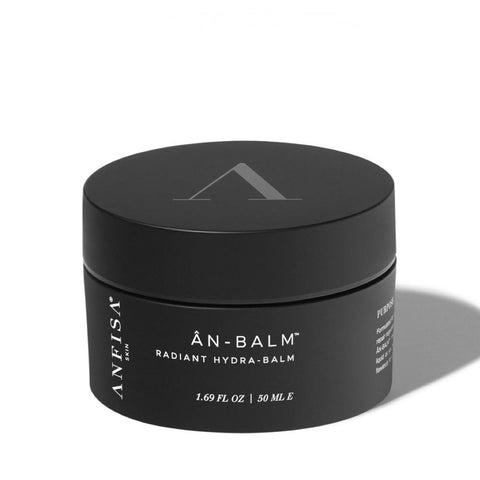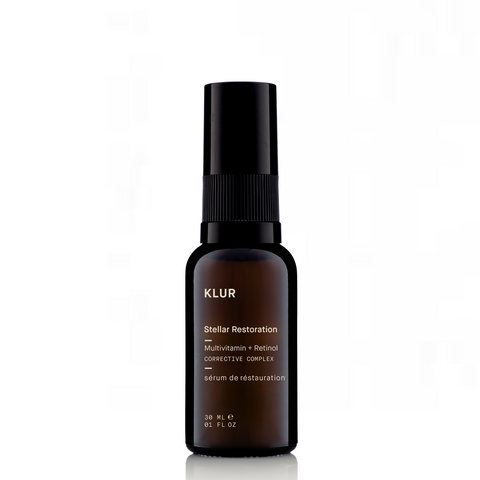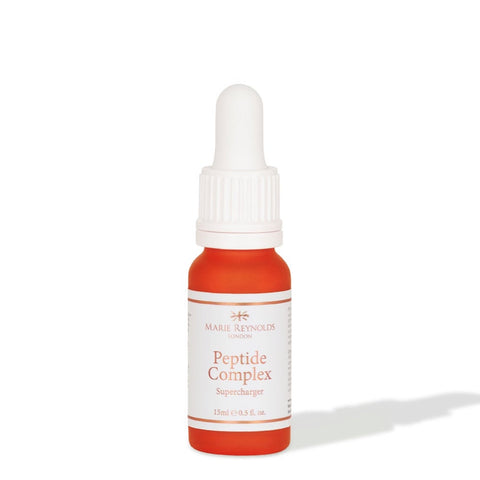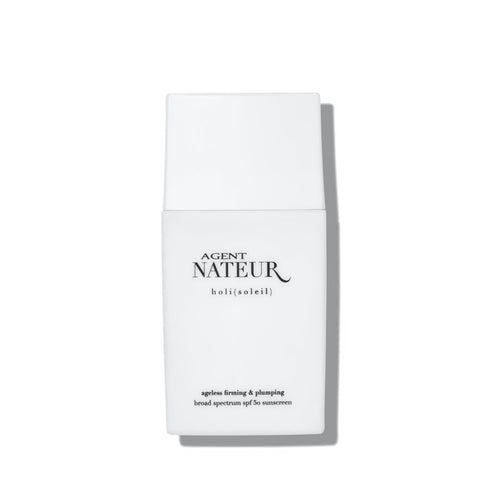Free shipping for HK orders HK$600+
How to Prevent and Improve Post-Inflammatory Erythema (PIE)
July 08, 2025
Acne, eczema, rosacea, and other skin issues are undoubtedly troublesome, but red and brown acne marks, pigmentation, are equally bothersome.
To effectively and quickly make them fade away, it's important to understand that red and brown acne marks and pigmentation have fundamental differences, and therefore, the methods of care are not the same.
Let's explain their differences to help you understand how to distinguish between the two, and the correct and most effective ways to prevent, improve, and lighten them!
(Due to the length of the content, we will discuss this in two separate articles. This one will focus on red marks, while the next article will address brown ones.)
The human skin consists of the epidermis, dermis, and subcutaneous tissue. If the damage caused by acne reaches the dermis and subcutaneous tissue, the skin may develop indentation scars, such as craters and icepick scars. These depressed acne scars are difficult to treat with topical skincare products alone, but retinoids, acid-based products, microneedling, and exosomes can help improve these scar issues to some extent.
On the other hand, acne marks and post-inflammatory hyperpigmentation refer to the red or brown marks left behind after acne and inflammation heal. In dermatology, the pink or red marks are called Post-Inflammatory Erythema (PIE), while the brown marks are referred to as Post-Inflammatory Hyperpigmentation (PIH).

Most people would categorize them as the same type of things, but their mechanisms of appearance are completely different, hence the methods of improvement also differ.
After acne, inflammation, or trauma, the appearance of pink or red marks and spots on the skin is referred to as Post-Inflammatory Erythema (PIE) in dermatology.
| Causes of Post-Inflammatory Erythema
Inflammatory Skin Conditions
- Acne: Inflammatory acne, especially when picked, squeezed, or damaged, may lead to the formation of Post-Inflammatory Erythema.
- Eczema: Inflammation of the skin in eczema areas may result in red marks appearing afterwards.
- Dermatitis: Contact dermatitis or other forms of dermatitis can irritate the skin, subsequently triggering Post-Inflammatory Erythema.
Skin Trauma
- Picking, squeezing, or scraping the skin, repeated friction, or even aggressive treatments such as using acne creams with high concentrations of Benzoyl Peroxide, prolonged use of steroid-containing ointments, can all potentially damage the skin, leading to inflammation and Post-Inflammatory Erythema.
Inflammatory Response
- As a response to skin irritation or injury, the skin releases inflammatory mediators. These mediators cause the blood vessels near the skin surface to dilate, resulting in red marks or red spots.
- After skin damage, increased blood flow aids in repairing the affected area but simultaneously leads to the formation of pink or red Post-Inflammatory Erythema.
| Mechanism of Post-Inflammatory Erythema
Vasodilation:
- The red or pink color of Post-Inflammatory Erythema is primarily due to the presence of blood vessels near the skin surface.
- In response to inflammation or injury, the body's natural defense mechanism causes vasodilation near the skin surface.
- Vasodilation increases blood flow to the affected area, resulting in the distinctive pink or red appearance of Post-Inflammatory Erythema.
Inflammatory Mediators
- In response to skin irritation or injury, the skin releases inflammatory cytokines such as histamine and prostaglandins.
- These inflammatory cytokines promote vasodilation and increase vascular permeability, allowing immune cells to reach the site of inflammation, but would also cause Post-Inflammatory Erythema.
| Temporary Nature of Post-Inflammatory Erythema
Unlike Post-Inflammatory Hyperpigmentation (brown marks), Post-Inflammatory Erythema is characterized by temporary pink or red marks, spots, and dots. When pressure is applied to the skin, such as by pressing the area, the blood flow would temporarily decrease in that region, causing the Post-Inflammatory Erythema to temporarily fade. Once the pressure is released and blood flow returns to normal, the Post-Inflammatory Erythema will regain its previous pink or red color.
Due to fundamental differences between "Post-Inflammatory Erythema" and "Post-Inflammatory Hyperpigmentation," it is important to understand how to effectively improve and lighten them by first distinguishing between the two.
| Key Differences between Post-Inflammatory Erythema (PIE) and Post-Inflammatory Hyperpigmentation (PIH)
Color
- PIE: Pink or red marks and spots on the skin resulting from inflammation and vascular dilation.
- PIH: Brown, and sometimes gray or black marks and spots on the skin caused by excessive melanin production, melanosome transfering to keratinocytes, and over-accumulation of melanin
Characteristics
- PIE: Characterized by temporary pink or red marks and spots. They may fade upon pressure due to impaired blood circulation in the area.
- PIH: Involves actual pigment changes in the skin (excessive melanin production, melanosome transfer, and deposition in keratinocytes). They do not fade or change color temporarily upon pressure.
Duration
- PIE: Typically temporary and fades over time. However, without treatment, they may last for weeks to months and may evolve into post-inflammatory hyperpigmentation due to ongoing inflammation.
- PIH: Generally more persistent. Unless treated in time, they may last for months to years.
Due to the issue of redness and swelling, sometimes it can be challenging to differentiate whether skin inflammations like acne or eczema are still ongoing or have already developed into Post-Inflammatory Erythema. As a reference, if acne swelling has subsided for over 10 days with no raised bumps or white heads, or if eczema or dermatitis no longer shows signs of peeling or itching but the area is still red, there is a high likelihood that it has become Post-Inflammatory Erythema.
This is because even though acne, eczema, or dermatitis may appear to have improved or disappeared to the naked eye after prolonged inflammation, the inflammation often persists in the deeper layers of the skin, continuing to cause vasodilation.
It is important to prevent and promptly treat these Post-Inflammatory Erythema and help the inflammation subside quickly. If the inflammation persists, melanin will continue to be produced, and the red marks will gradually evolve into Post-Inflammatory Hyperpigmentation, i.e. brown marks.
| Don't Pick Your Skin
When acne, eczema, or dermatitis appears, avoid picking, squeezing, or popping them, as not only would this worsen the inflammatory condition but would also significantly increase the likelihood of spreading the inflammation to surrounding and deeper layer of skin and tissues, ultimately causing more extensive damage to the skin.
Furthermore, one of the causes of Post-Inflammatory Erythema is vasodilation, and when you squeeze or pop the skin, you are pushing blood towards that area, which will naturally make the Post-Inflammatory Erythema more persistent
| Apply Live Probiotics, Avoid Steroid Creams
Yes, steroids can kill bad bacteria, but at the same time, they also kill the beneficial bacteria that maintain skin health. When the "good" and "bad" bacteria on the skin are balanced, they form the first line of defense for skin immunity that effectively blocks bacteria and pathogens. Whilst, when the skin lacks beneficial bacteria, the skin's microbiome becomes imbalanced. When this first line of immune defense breaks down, the skin can no longer resist the invasion of bad bacteria and pathogens. This is why once you stop using steroid creams, inflammation problems can recur and even worsen (known as "steroid dependence").
Thus when issues like acne and eczema arise, consider applying a face mask containing live probiotic cultures in the morning and evening (must contain "live cultures"). Live probiotics can secrete antibacterial, antimicrobial, and anti-inflammatory substances, penetrate harmful bacteria before inflammation occurs, and kill them. They can also establish a protective layer on the skin surface to prevent harmful bacteria from entering skin cells. Additionally, these live probiotic organisms can calm skin cells, preventing them from sending overly strong "attack" signals to the skin immune system when facing bad bacteria, thereby reducing inflammation, redness, itching, swelling, dryness, roughness, and other issues.
Product Recommendation
MARIE REYNOLDS LONDON
Restore Probiotic Mask <- Click to Shop
| Harness the Power of Anti-Inflammatory and Soothing Skincare Ingredients
The main causes of Post-Inflammatory Erythema are inflammation and vasodilation, so to prevent and improve these red marks or spots, it is essential to focus on combating inflammation and soothing the skin. In addition to the aforementioned live probiotics, there are some highly effective anti-inflammatory and soothing ingredients. Noteworthy among these are exosomes, resveratrol, green tea, matcha, and white tea!
Exosomes
- Exosomes can inhibit excessive inflammatory responses by regulating the activity of immune cells, such as suppressing the release of inflammatory mediators and modulating the function of T cells.
- Exosomes can influence the local microenvironment by regulating oxidative stress between cells and cytokine secretion, thereby suppressing the inflammatory process.
- Exosomes can reduce the activity of immune cells, decrease the severity of inflammatory responses, help alleviate tissue damage, and consequently reduce the appearance of Post-Inflammatory Erythema.
- Some exosomes can reduce cell apoptosis caused by inflammation, helping to maintain the stability of skin tissues.
- It is important to note that the quality of exosome skincare products varies greatly. The purity and quality of exosomes used in skincare products can differ depending on the brand and manufacturer; low-quality or impure exosomes may not provide the expected benefits and could potentially irritate the skin. Additionally, there is a risk of some unscrupulous individuals launching skincare products that claim to contain exosomes but actually do not. Therefore, when selecting exosome skincare products, it is best to choose brands approved by national dermatology hospitals or reputable brands. For more details, please visit All About Exosomes for Skin Care and Their Skin Benefits

Product Recommendation
HANISUL
Less More MO-A™ Advanced Ampoule <- Click to Shop
Product Recommendation
HANISUL
Less More MO-A™ Intense Repairing Mask <- Click to Shop
Resveratrol
- Resveratrol is a powerful antioxidant that helps neutralize free radicals, and reduce oxidative stress, thereby alleviating cell damage and inflammatory responses.
- Can effectively inhibit the release of inflammatory mediators such as tumor necrosis factor-alpha (TNF-α) and pro-inflammatory cytokines, thereby reducing the severity of inflammatory responses.
- Can regulate the activity of immune cells, such as modulating the function of T cells and macrophages, while helping to balance the immune system and consequently alleviating inflammation.
- Can inhibit the expression of inflammatory markers such as cell adhesion molecules and inflammation-related genes, thereby reducing the progression of the inflammatory process.
- Helps to regulate multiple cell signaling pathways, such as NF-κB and MAPK, thereby controlling inflammation and cell survival.
Green Tea, Matcha, White Tea
- The polyphenols in green tea, matcha, and white tea, especially catechins, have powerful antioxidant properties that help to neutralize free radicals, and reduce oxidative stress damage to cells, thereby alleviating inflammatory responses.
- Polyphenols have the ability to inhibit the release of inflammatory mediators, such as suppressing the release of inflammatory cytokines, thereby reducing the degree of tissue inflammation.
- They can regulate the activity of immune cells, balance the immune system's response, and help suppress excessive inflammatory reactions.
- Polyphenols have antibacterial properties, helping to reduce inflammation caused by pathogens.
- Polyphenols can interfere with inflammation-related signaling pathways, such as NF-κB and MAPK, thereby regulating the inflammatory response.
Product Recommendation
ANFISA
ÂN-BALM™ Radiant Hydra Balm <- Click to Shop
| Avoid Using Benzoyl Peroxide Acne Cream
Many acne creams contain benzoyl peroxide. While this ingredient can kill bacteria that cause acne, it also increases oxidative stress in the skin and can dry out the skin, thus exacerbating inflammation and ultimately leading to Post-Inflammatory Erythema. In some cases, this ingredient can even trigger severe allergic reactions that cause widespread redness and swelling.
| Use Skincare Products that Effectively Improve Acne and Have Anti-Inflammatory Properties
Some skincare ingredients can improve and prevent acne, and because they also have anti-inflammatory properties, they can reduce the chances of Post-Inflammatory Erythema even if acne occurs. These ingredients include retinol, bakuchiol, sodium ascorbyl phosphate, and more.
Among these, retinol promotes cell turnover, which can help get rid of the Post-Inflammatory Erythema quickly, while sodium ascorbyl phosphate has acne-fighting properties that surpass benzoyl peroxide!
Product Recommendation
KLUR
Stellar Restoration Corrective Complex <- Click to Shop
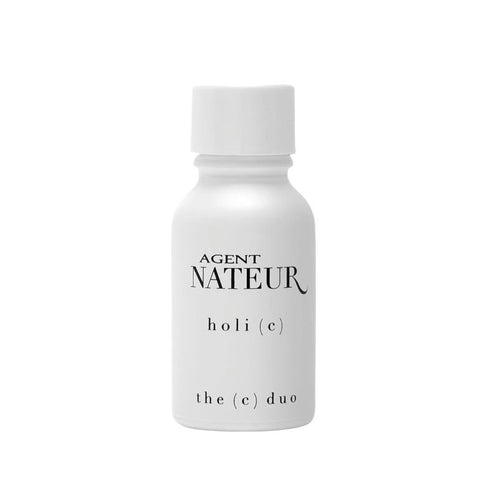
Product Recommendation
AGENT NATEUR
holi(c) The C Duo <- Click to Shop
Product Recommendation
MARIE REYNOLDS LONDON
Bakuchiol Complex Supercharger <- Click to Shop
| Use Azelaic Acid Products
Azelaic acid has antibacterial properties that can particularly inhibit P. acnes and Staphylococcus epidermidis, commonly associated with acne. When the bacterial count on the skin decreases, various inflammatory issues, including acne, naturally reduce, thereby preventing Post-Inflammatory Erythema.
Additionally, azelaic acid can reduce and inhibit inflammation through various pathways:
- Free radicals are highly reactive molecules that induce oxidative stress, and promote inflammation. Azelaic acid, with potent antioxidant properties, can lower the levels of free radicals, thereby reducing inflammation.
- Mitochondrial oxidoreductases are elements of cellular energy production. When these oxidoreductases are elevated, excess reactive oxygen species (ROS) that trigger inflammation accumulate in skin cells. Azelaic acid can inhibit these enzymes and reduce ROS production to help suppress inflammation.
- Neutrophils are a type of white blood cell involved in immune responses. When neutrophils are overactive, they produce many pro-inflammatory oxygen derivatives like superoxide anions and hydrogen peroxide. Azelaic acid helps reduce the generation of these pro-inflammatory molecules, thus effectively alleviating inflammation.
Furthermore, azelaic acid can improve follicular skin cell growth by inhibiting the proliferation and differentiation of keratinocytes, and promoting orderly skin cell growth within hair follicles. This not only helps keep pores clear and reduces acne occurrence but also aids in improving blackheads and whiteheads. With reduced acne, the appearance of Post-Inflammatory Erythema naturally diminishes.
Product Recommendation
ANFISA
ÂN-DEW 10% Azelaic Acid + PHA Serum <- Click to Shop
| Strengthening Skin Thinned by Inflammation
Since the skin would thin after inflammation, blood vessels and muscles would become more visible, and thus, red marks would appear more reddened. Therefore, repairing and strengthening the skin barrier, while increasing skin firmness and elasticity, is crucial.
Ingredients that effectively address this condition include Exosomes, Helichrysum (also known as "Immortelle"), Pomegranate Seed Oil, Carrot Root Oil, Sea Buckthorn Oil, Rosehip Seed Oil, as well as Retinol, Peptides such as Copper Tripeptide-1 and Tetrapeptide-7, Sodium Ascorbyl Phosphate, Niacinamide (Vitamin B3), Beta-Glucan, Calcium Ketogluconate, and proprietary ingredients derived from pink rock rose flower, leaves, and stems from Israeli desert like IBR-Chill™.
Product Recommendation
HANISUL
Less More Noni Mild Cream <- Click to Shop
Product Recommendation
AGENT NATEUR
holi(crème) Filter Face Crème <- Click to Shop
Product Recommendation
MARIE REYNOLDS LONDON
Peptide Complex Supercharger <- Click to Shop
| Use SPF Daily, Both Indoors and Outdoors
Setting aside melanin issues, since the main causes of Post-Inflammatory Erythema are inflammation and blood vessel dilation, preventing and improving them naturally involves avoiding UV rays that can further damage already fragile skin. Therefore, whether it's sunny, cloudy, or rainy, whether you are indoors or outdoors, it is essential to use sunscreen to prevent UV damage to the skin and to avoid exacerbating inflammatory issues.
Product Recommendation
AGENT NATEUR
holi(sun) SPF50 Tinted Sunscreen <- Click to Shop
Product Recommendation
HANISUL
Less More MO-A™ Daily Sun Cream SPF50+ PA++++ <- Click to Shop
Product Recommendation
AGENT NATEUR
holi(soleil) SPF50 Ageless Firming & Plumping Sunscreen <- Click to Shop
| Avoid Any Form of Friction
Friction can cause subtle skin damages that are invisible to the naked eye, which can then lead to inflammation. Therefore, it is essential to avoid any actions that may cause friction on the skin, including vigorously cleansing or massaging the face, touching the face, wiping the face with towels or cotton pads, using cleansing machines or brushes, and exfoliating with scrubs, etc.
What about applying skincare products? It is advisable to avoid rubbing the face or applying skincare products in a circular motion to minimize friction. Instead, gently press the products onto the face.
Remember, unless absolutely necessary (such as during cleansing and applying skincare products), keep your hands away from your face!!
Want to know how to prevent and improve brown acne marks and Post-Inflammatory Hyperpigmentation issues? Stay tuned for our next article!
Also in The Journal

The Hidden Culprits of Skin Aging: Autophagy Decline and Zombie Cells
January 07, 2026
Don't just mask aging—reverse it. Learn how clearing Senescent Cells and restarting Autophagy creates lasting youthful skin.

The Anti-Aging Gold Standard: How Retinol Reshapes The Skin
November 12, 2025
Learn why retinol is the gold standard for anti-aging, how it works, what similar ingredients exist, and some common myths and misconceptions.

The Gut-Skin Connection: The Path to Healthy Skin
October 26, 2025
Acne, eczema, rosacea, and sensitivity can all be linked to the gut health, and even gluten? Learn all about the connection between the gut and the skin.
+Recent Articles
-
The Hidden Culprits of Skin Aging: Autophagy Decline and Zombie Cells
January 07, 2026
-
The Anti-Aging Gold Standard: How Retinol Reshapes The Skin
November 12, 2025
-
The Gut-Skin Connection: The Path to Healthy Skin
October 26, 2025
-
The Secret to Reversing Skin Aging! How Growth Factors & Peptides Help Turn Back the Clock
October 13, 2025
-
The Best Ways and Times to Take Different Supplements
August 19, 2025
-
Luxury vs. Budget-Friendly Skincare Products——What Are Their Differences?
August 06, 2025
-
How to Prevent and Improve Post-Inflammatory Hyperpigmentation (PIH)
July 10, 2025
-
How to Prevent and Improve Post-Inflammatory Erythema (PIE)
July 08, 2025
-
The Ultimate Cleansing Guide to Improve Skin Conditions
June 03, 2025
-
Do You Have Sugar Face? How Does Sugar Affect Our Skin and Appearance?
May 20, 2025
Subscribe to get skincare knowledge delivered to your inbox!





